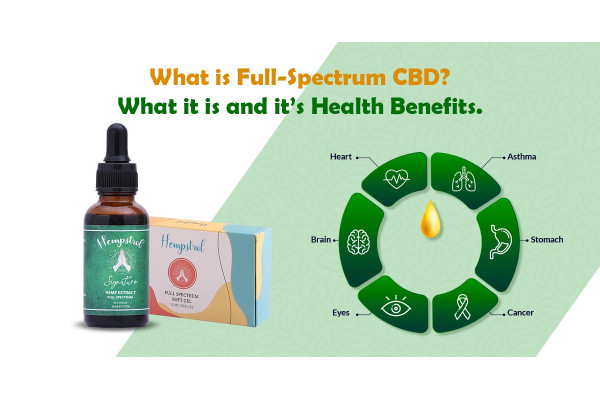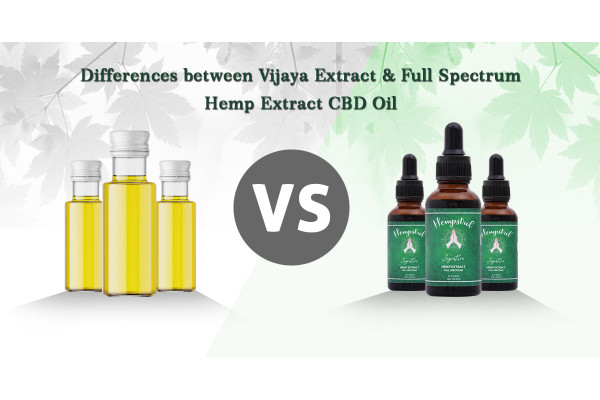THC Oil: How It Helps in Body & Mind Healing?
In today's world, chronic pain affects more individuals than diabetes, cancer, and heart disease combined. Chronic pain is gradually becoming the most common cause of long-term disability. Medical cannabis will ultimately and gradually replace traditional painkillers. Many research studies have found that cannabis can help with various types of chronic pain, such as inflammation and nerve pain. Furthermore, anecdotal data suggests that cannabis or its derivative is a potential analgesic for a variety of pain conditions. Cannabis comes in a variety of types or strains, and each one may have a somewhat different effect on a person. Let's speak about how medical cannabis can aid with pain relief.
What effect does cannabis have on pain?
Cannabis includes chemicals that may alleviate symptoms such as pain, nausea, and others. The elements of cannabis that have received the greatest attention for pain relief (THC) include cannabidiol and tetrahydrocannabinol. THC oil buy India is similar to the cannabinoid compounds produced by the body. THC stimulates cannabinoid receptors in the brain. This boosts the brain's reward system while decreasing discomfort. THC is a psychoactive drug because it binds to cannabinoid receptors and induces a "high," or altered state of awareness. Although CBD products in India interact with pain receptors in the brain to provide pain relief and anti-inflammatory qualities, they do not cause intoxication.
What are the advantages?
The following list of medical cannabis advantages covers some of the most often reported both anecdotally and in scientific studies.
Pain relief: Cannabis cannabinoids may alleviate pain by altering the neuronal circuits in the brain that cope with it. This treatment may be beneficial for the following conditions that cause chronic pain: arthritis, fibromyalgia, endometriosis, migraine, and so on. Furthermore, it may lessen the unfavourable side effects of cancer treatment, such as appetite loss.
Promotes Brain Growth: Believe it or not, the medical benefits of THC Oil for the brain may be even more than we previously thought. The medicine not only protects but also encourages brain development. How does it work? You may be wondering. THC activates the "CB1 receptor" in our brains. This stimulation promotes the long-term potentiation process, which increases the brain's learning ability. THC, like CBD, promotes the proliferation of brain cells in the hippocampus. More data suggests that THC may be able to protect spatial memory. Small cannabis doses can thus treat or even slow the growth of diseases like Alzheimer's. THC can also help to prevent Alzheimer's disease in a variety of ways.
Nonsteroidal anti-inflammatory drugs (NSAIDs) such as ibuprofen, which can have serious adverse effects, are frequently reported to be replaced in some situations by medical cannabis.
Reduces inflammation: Cannabis CBD products in India are said to have anti-inflammatory qualities. In theory, this could help with inflammatory disorders such as inflammatory bowel disease, rheumatoid arthritis, and so on.
THC Increases Appetite: Appetite loss can be a symptom of diseases such as HIV, eating disorders, hepatitis, and dementia. Over time, this could lead to severe malnutrition or even death. THC is well known for increasing appetite. Ghrelin, a hunger hormone, is released by the same type of receptors in the hypothalamus that THC interacts with. THC can even enhance the taste of food. With the right management, the effects of THC that make people hungry can dramatically improve their quality of life.
THC is antibacterial: Did you know that marijuana plants produce THC in order to defend themselves against pathogens? It turns out that cannabinoids have similar effects on humans and animals. In this case, cannabis affected the gut microbes of obese mice, making them more similar to the microbial population found in lean mice.
Antioxidant: Cannabis has long been advocated as an anti-aging and anti-stress treatment. THC and other cannabinoids are powerful antioxidants. This is not surprising given that the herb increases THC production in response to UVB light while also protecting cannabis plants from diseases. UVB rays cause oxidative damage in humans, hastening the ageing process and worsening skin problems. Oxidative stress can cause DNA and cell damage. As a result of this damage, customers are more vulnerable to major ailments such as cancer and neurological disorders. One of THC's many health benefits is its potent antioxidant qualities, which protect the body from the effects of stress.
What does the research indicate?
Several recent studies have looked into how cannabis affects chronic pain. More research is required because some studies used only certain components of the cannabis plant while others used the entire plant. When the entire plant is used, however, an entourage effect occurs, in which the parts interact to produce a greater effect. This allows researchers to better grasp the element's particular impacts. Smaller trials have found benefits for several types of chronic pain. As an example:
According to a 2015 scientific review, cannabis and cannabinoids were useful in treating a variety of chronic pain problems, including neuropathy or nerve pain. Furthermore, according to a 2016 study, cannabis use for cancer pain resulted in a 64% reduction in opiate consumption, which aided in enhancing quality of life. 70% of the 17,000 cancer patients who used cannabis allegedly had pain relief and improved overall health. People with chronic migraines reported fewer episodes after using the drug. More research is needed in the area of cannabis use for chronic pain, specifically in the utilization of different strains, doses, and delivery systems.
After years of being seen as an illicit substance, medical cannabis is now being evaluated on both a cultural and legal level. Those suffering from chronic pain may get little to moderate pain relief in the near term while using specialized prescription cannabis products with higher THC oil buy India to CBD proportions. To obtain the correct dosage
Conclusion
Medical cannabis is probably one of the most contentious subjects in today's society, both legally and medically. More research is needed for all sides of the debate to establish an agreement on medicinal cannabis use in medical and recreational contexts.
Meanwhile, if you're interested in the possible benefits of medicinal cannabis for your personal health, you should first consult with a doctor before you buy thc oil online. Depending on where you reside, they can help you assess the benefits against any potential risks and the legal procedures for obtaining medical cannabis. Never use any drug or substance to address a medical ailment on your own.
















-600x450.jpg)


.jpg)





